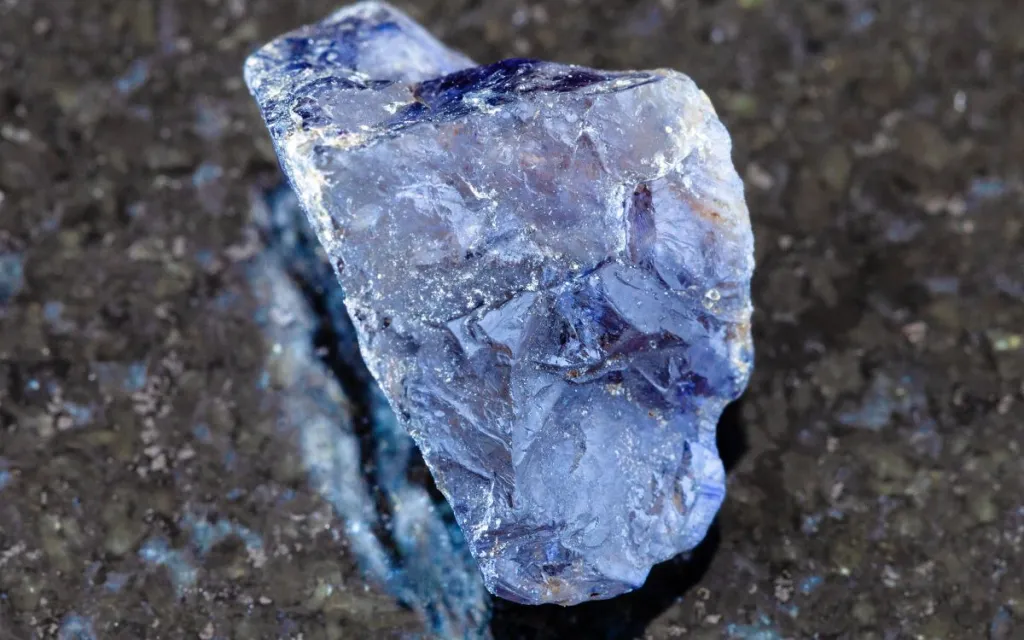In the grand hall of industrial materials, cordierite holds a significant position due to its outstanding thermal shock resistance. However, transitioning from perfect lab formulations to large-scale, stable industrial production, one of the core challenges lies in the “purity” of raw materials. This article will delve into the critical role of high-purity magnesium oxide in cordierite preparation and elucidate why Hebei Messi Biology Co., Ltd.’s high-purity magnesium oxide (99.9%) can be a powerful catalyst for industry advancement.

I. Cordierite Applications: From Automotive Exhaust to Home Kitchens
Before delving deeper into the raw materials, let’s first explore where cordierite is actually used:
- Automotive Catalytic Converter Substrates: The honeycomb ceramic body in your car’s exhaust pipe is very likely made of cordierite. It needs to withstand severe thermal shock from engine start-up, shut-down, and exhaust during driving. Its low thermal expansion characteristic ensures it won’t crack and can stably support precious metal catalysts.
- Heat-Resistant Cookware and Kiln Furniture: High-end casseroles, baking stones, and kiln shelves and posts used in ceramic factories for firing porcelain all leverage cordierite’s “crack-free upon heating” property.
- Electronic Packaging and Substrates: In certain electronic fields with extremely high thermal management requirements, cordierite ceramics are used for packaging materials and circuit substrates due to their electrical insulation and thermal stability.
All these applications demand extremely high reliability and consistency from the material, as any single failure could lead to severe consequences.
II. The Battle for Purity: The “Butterfly Effect” of Magnesium Oxide
In the synthesis of cordierite, the purity of magnesium oxide creates a “butterfly effect” – minute differences in purity are amplified throughout the entire preparation process, ultimately leading to vastly different product performances.
Common impurities in ordinary magnesium oxide, such as calcium (CaO), iron (Fe₂O₃), and boron (B₂O₃), are “invisible killers” of cordierite performance.
- Calcium Impurities: Very easily react with silicon and aluminum raw materials to form low-melting glass phases like anorthite. These glass phases melt at high temperatures, temporarily promoting sintering like glue, but severely degrade high-temperature strength and creep resistance, causing the product to easily deform or collapse during long-term high-temperature use.
- Iron, Titanium, and other Colored Impurities: Not only do they promote the formation of undesirable crystalline phases, but they also affect the final whiteness of cordierite ceramics, which is unacceptable for products with aesthetic requirements (e.g., high-end kiln furniture, heat-resistant ceramics).
- Alkali Metal Impurities (Sodium, Potassium): Significantly reduce cordierite’s refractoriness and high-temperature viscosity, leading to a narrower sintering temperature range, difficult process control, and large fluctuations in product performance.
III. Hebei Messi Biology Co., Ltd.’s High-Purity Magnesium Oxide: Solutions and Advantages
Facing these challenges, Hebei Messi Biology Co., Ltd. offers an ultimate solution with its 99.9% high-purity magnesium oxide:
- Cornerstone of Performance Assurance: Using such high-purity MgO fundamentally prevents the formation of the aforementioned harmful impurity phases. This enables material scientists and engineers to precisely control cordierite formulations and sintering processes, producing top-tier products with thermal expansion coefficients infinitely close to theoretical values, the densest structures, and the highest strengths.
- Enhanced Process Window and Production Efficiency: The sintering behavior of high-purity raw materials is purer and more predictable. This broadens the temperature and time range for the sintering process, reduces the difficulty of production control, improves product yield and consistency, and significantly lowers production costs in the long run.
- Enabling High-End Innovation: As performance demands for cordierite continue to rise (e.g., thinner wall thicknesses, higher porosity, more complex structures), the requirements for raw material purity also increase proportionally. Hebei Messi Biology’s high-purity magnesium oxide makes it possible to develop next-generation, higher-performance innovative products such as cordierite honeycomb ceramics and composite ceramics.
- Green and Environmental Benefits: High purity translates to fewer impurity emissions and longer product lifespan. Cordierite kiln furniture prepared with high-purity magnesium oxide is more durable, reducing solid waste and downtime losses from frequent replacements; the prepared catalytic substrates are more reliable, contributing to the continuous reduction of exhaust emissions.
Conclusion
In the advanced ceramics sector, where extreme performance is sought, the competition for materials is essentially a battle for purity and consistency. Hebei Messi Biology Co., Ltd. profoundly understands this. Its 99.9% high-purity magnesium oxide is far more than just a commodity; it is a strategic material that empowers downstream industrial upgrades and drives breakthroughs in key technologies. It ensures that cordierite materials can reliably perform in their demanding operational environments, safeguarding our blue skies (automotive exhaust purification), culinary delights (heat-resistant cookware), and art (ceramic firing). Choose high purity, choose the future.
